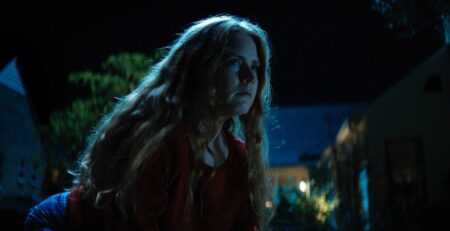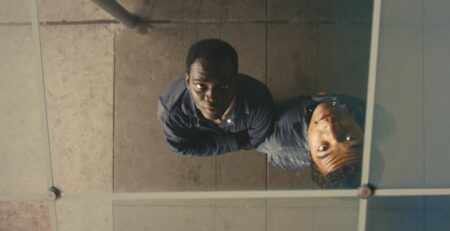
“Loyal. Brave. True” These are the words repeated over and over again in Mulan, Disney’s live-action adaptation of the Chinese legend of Hua Mulan, a girl who takes her father’s place in the Emperor’s Imperial army. For many, the 1998 cartoon, also by Disney, was our first introduction to this tale of a young woman who would defy tradition and break all the rules to protect her father. We were excited to finally see the amazing fight sequences come to life, hear the amazing soundtrack once more, and see Li Shang in the flesh. Out of those three, we got one and a half…sorta.
Directed by Niki Caro, Mulan is a mix of the real-life folk tale, and the animated interpretation. From the animation, we have references to characters like Crickey, the cute cricket that brought Mulan good luck in the funniest ways, the matchmaker, Mulan’s clumsy faux pas with the tea set, and Shan Yu’s hawk. I say references because what we have in the live-action aren’t exactly the same as the characters and scenes we know. Cricket is now a man played by Jun Yu, one of Mulan’s (Yifei Liu) comrades in the army. As for Shan Yu’s Hawk, she is also a human, a witch named Xianniang (Li Gong).
These changes are acceptable, to a degree because Caro and the writers want to ground the film in realism, but one change that doesn’t work is the use of qi. In Chinese philosophy, qi is a circulating life force contained within the human body. But here, it’s the explanation for everything that makes Mulan the person we were inspired by. In the animation and the legend, Mulan’s bravery and gumption come from her strength of character. It was her will to risk her life in joining the army and her tenacity to excel in training going against Shan Yu that made fans fall in love with her. She was an example that young girls and women could do anything we set out minds to, as long as we believed in ourselves, but this isn’t the case in Caro’s film.
Here, it’s qi that’s responsible for Mulan’s – or Hua Jun as her alias has been changed from Ping – abilities as a fighter and ability to kick sharp objects with precise aim. Mulan isn’t the strong-willed girl because she was raised by loving parents, a father who encouraged her to be herself and believed that she would come into her own when the time was right. She’s amazing because she’s been blessed with a special gift that only boys are supposed to have, which as a premise is actually contradicted by Commander Tung (Donnie Yen). Because she possesses this qi, Mulan is told she must hide it, lest she brings dishonor on her family which would lead to exile. Herein lie the crux and failure of the entire film.
Since qi has been set up as this mystical energy that women aren’t supposed to have, any woman who does, is automatically set up as an enemy of the male characters, as has been done with Xianniang. Banished by her people for her abilities, Xianniang is a woman filled with bitterness and the thirst for revenge. She sees men as weaklings whose narrow mindedness makes her view them as being beneath her. And to be honest, I don’t blame her. But rather than have Xiannang use her power to create the world she envisions where women can be who they want to be, she uses them in service of Bori Kahn (Jason Scott Lee) the leader of the Rourans, the mortal enemies of the Emperor (Jet Li), which is another contradiction within the film. If Xianniang is so powerful and despises men and everything they stand for, why is she helping them?

Apart from the misconception of what qi is, the wasting of Li Gong and her talent’s on a character that wasn’t even necessary to the story, and the implication that without her qi, the live-action Mulan would be incapable of doing what legend and animated Mulan did (ironic right?), the film is dry. In a story where time is of the essence, Mulan feels like a slow slog over rough terrain, rather than a tension-filled action epic. In comparison, the animation is more gripping and entertaining.
Even though it’s a live-action, there was no need to remove the humorous and light-hearted moments the animation is known for. And I hate to say it, but this score doesn’t compare to Jerry Goldsmith’s original. Gone are the bold 80’s synth sounds and brass instruments that got us excited over what was taking place on the screen. There isn’t even a musical reference to “Make A Man Out of You” one of the most popular songs in the Disney pantheon or “True To Your Heart,” sung by 98° and Stevie Wonder in the end credits (the disrespect!). Instead, there are brief refrains of “Reflection,” and lyrics from the songs incorporated into the dialogue which sound forced and unnatural.
That said, the best part of Mulan is the actors. Li does a fine job of playing a character struggling to hold back and conceal what comes most naturally to her. Lee has the right amount of intensity as Bori Khan, which prevents the character from feeling like…well…a cartoon villain. While there’s no Li Shang, we do have Hong Hui (Yoson An), a fellow soldier who sees and trusts Hua Jun, but like the other’s he isn’t given much to work with story-wise. And of course, Ming Na Wen makes an all too brief appearance, to the delight of everyone.
Though the film is pretty to look at, the scenery, colorful costumes, and famous actors aren’t enough to hold one’s attention for the entire two-hour runtime. With the caliber of actors gathered, I just wish their characters had been given more depth. For a film that’s pretty lengthy, it feels as though nothing much happens overall. The writing fails them, the fans, and ultimately Mulan herself because it is neither loyal to the story, feels brave, nor true to who she is.
Mulan is streaming exclusively on Disney+’s Premier platform.
Mulan
-
Rating - 5/105/10
TL;DR
Though the film is pretty to look at, the scenery, colorful costumes, and famous actors aren’t enough to hold one’s attention for the entire two-hour runtime. But while the actors were all good, I just wish they had been given more depth. For a film that’s pretty lengthy, it feels as though nothing much happens overall. The writing fails them, the fans, and ultimately Mulan herself because it is neither, loyal to the story, feels brave, nor true to who she is.




